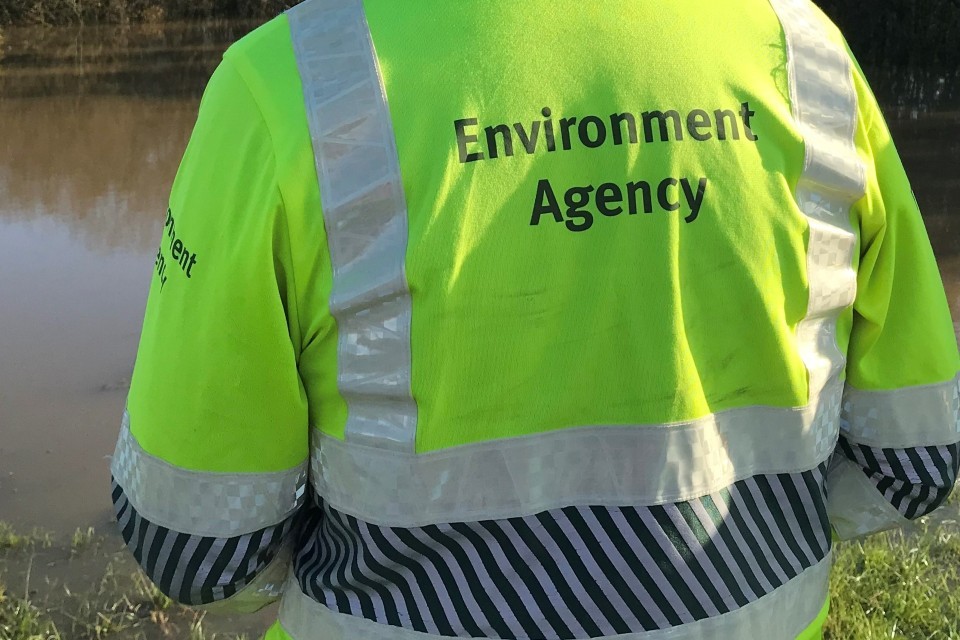Thank you for the introduction and for the opportunity to address this esteemed audience.
What I really appreciate about the Fordham conference is the breadth of attendees – from agency representatives and practising antitrust lawyers to economists, academics and students. This convergence of perspectives creates a richness of debate which invariably lifts us all beyond our respective day jobs.
Whatever our roles, I think we may all agree that the debate about the fundamental purpose of antitrust law and policy – its relevance in times of economic turbulence and geopolitical change – has never felt so pressing.
This, of course, makes for fascinating conference discussions. But the implications are very real. That question of purpose has, it seems to me, reached an inflexion point. And there is a real benefit in seeking to find the answer together – to support our economies and foster continued global collaboration in areas of common interest.
That question of ‘why competition policy matters’ has been a central and defining theme throughout my career. As an Oxford undergraduate in the mid-1990s studying politics, philosophy and economics, competition policy held an instant attraction. A field where legal frameworks and economic analysis came together with a clear purpose to deliver better outcomes for society.
My economics tutor wisely observed that my love of language slightly outweighed my love of numbers and nudged me towards a career in competition law.
In private practice, I was fascinated by the competitive dynamics at play for clients in a vast range of different sectors.
But I was always drawn to the policy choices behind the law – that question of why this really matters. A decade after that career-defining conversation with my tutor, I jumped at the chance of a secondment to the UK’s then Office of Fair Trading. And, almost a decade after that, I seized the opportunity to become the first General Counsel of the UK’s newly formed Competition and Markets Authority.
But it is only over the last 3 years, as Chief Executive of the CMA, that I have truly understood the extent of the responsibility – and opportunity – that we have as leaders of our agencies. To navigate law, economics, policy and our external operating environments to deliver the best possible outcomes for those we serve.
I’d like to share some reflections – an answer of sorts for that fresh-faced undergraduate of 30 years ago – on why our work matters more than ever. To consumers and society more broadly. To government, businesses, and investors. And, of course, to national and global economies.
Importantly, I’d like to offer some thoughts on how we must adapt to remain relevant and impactful. How we, as agencies operating in times of change, in times of real need, must find ways to stay true to our mandate whilst delivering greater real-world impact than ever before.
Naturally, I explore these themes principally from a CMA, and therefore a UK, perspective. But I know from discussions with counterparts, both bilaterally and in multilateral fora like the OECD (Organisation for Economic Co-operation and Development) and ICN (International Competition Network) that we share many common challenges.
Reflecting on my experience at the CMA, the last 12 months has undoubtedly been a period of evolution, both in terms of what we do, and how we do it. Staying true to the fundamentals of our purpose – promoting competition and protecting consumers – while responding in an agile, decisive, tangible way to our new operating landscape.
Our operating landscape
For the CMA, that landscape has been defined by the election of a new government just over a year ago, with a clear, priority focus on driving economic growth.
This is a persistent challenge across the world, with the strength of debate about how to secure it becoming more acute in recent years. For the UK, it is accompanied by the need to navigate a post-Brexit geopolitical and international trading environment.
Against that backdrop, our government has asked that UK regulators – including the CMA – play their part to deliver that mission.
At first glance, supporting economic growth might seem a straightforward task for antitrust agencies. After all, we know that open, competitive and dynamic markets deliver greater investment, innovation, and higher levels of productivity. There should be no tension, in principle, between our statutory mandate to promote competition and protect consumers and our contribution to the growth mission.
The reality is more complex. Day in, day out we make choices about what work we prioritise and how we go about that work – and those choices can shift the growth needle left or right, deliberately or inadvertently. Both because of the real-world impact of that work, and through the potential ‘regulatory shadow’ it can cast over how the UK is perceived as a place to do business and invest.
That’s why the UK government’s new strategic steer to the CMA, issued in May this year, is particularly helpful – recognising the importance of our fundamentals while clearly situating our work within the growth mission.
This has focused our minds at the CMA toward how we can maximise our contribution to that mission.
It is perhaps worth giving this international audience a brief explanation of the government’s strategic steer. Like many antitrust agencies globally, the CMA’s independent decision-making in cases is enshrined in statute. But that does not, and should not, mean that we operate in a vacuum, insulated from wider government policy. The steer explains it well
“The CMA must at all times properly and independently exercise its statutory functions to promote competition and protect consumers.
In all areas where the CMA has discretion over which reviews, studies or investigations to commence, and in all cases where the CMA is considering remedies, the CMA should give appropriate consideration to
-
prioritising pro-growth and pro-investment interventions
-
focusing on markets and harms that particularly impact UK-based consumers and businesses
-
supporting growth and competitiveness in the industrial strategy’s 8 growth-driving sectors”
Put another way, we carry on with the day job – to promote competition and protect consumers. But where we exercise discretion, take judgment calls and choose how to operate, we proactively lean into the growth mission – incentivising investment, supporting business confidence, and helping to deliver the UK’s modern industrial strategy.
Nor do we operate in isolation from the global context. Again, the steer rightly directs us to focus particularly on impact for UK businesses and consumers. But it also makes clear we should consider actions being taken in other jurisdictions internationally, and, where appropriate, seek to ensure parallel UK action is timely, coherent and avoids unnecessary duplication.
So, that is our new operating environment. I will turn now to how we are responding in practice in 3 key respects
- first, how we are fundamentally transforming the way we go about our work
- second, how we have recalibrated the choice of what work we should prioritise
- and third, measuring our impact and performance to demonstrate the tangible benefits from our work
1. Transforming how we go about our work
I want to start with how we go about our work in a pro-growth operating environment. This has been a major focus of transformation for us over the last 12 months. To explain why, I’ll use the antitrust practitioner’s best friend, the counterfactual.
We could, as an agency, get every one of our prioritisation choices spot on, tackling issues which really matter. But the value of our work is negated if we are so slow to deliver positive outcomes that the benefit is diluted or lost, or the uncertainty cost to business and investors awaiting an outcome is too high.
The same is true for predictability. Of course, there will never be absolute certainty in an evidence-based legal process, where decisions carry a degree of judgment. But if uncertainty within the regime – real or perceived – begins to erode business and investor confidence, then even well-founded decisions may lose their legitimacy.
Likewise, if interventions to deliver positive outcomes are disproportionate to the harm they seek to address, especially once we factor in the costs imposed, then the overall benefit in economic terms is diminished.
And finally, if we reach valid outcomes but do so in a way which has not inspired the trust and confidence of stakeholders – if they feel they have not had a fair hearing or a been given a clear sense of process – then our mandate is eroded. In short – we cannot afford to operate in an ivory tower. Instead, we must create and maintain open, constructive channels of engagement tailored to our many and diverse stakeholders.
To be clear, I am not suggesting the CMA was ever operating at the extremes of this counterfactual world. But, when I personally met with some of our key stakeholder communities following the UK’s general election, to understand how the CMA could better deliver in support of the growth mission, these themes came through loud and clear.
That’s why, last November, I announced our ‘4Ps’ programme, designed to embed the principles I’ve just outlined pace, predictability, proportionality, and an enhanced process for stakeholder engagement. Since then, we’ve moved swiftly to operationalise this transformation – the most significant in the CMA’s history – across all areas of our frontline work.
We have made over 75 commitments so far. Let me give you a flavour of just a few of them
To improve pace, we have introduced new KPIs in our mergers process that considerably speed up the pre-notification period and straightforward phase 1 cases. We’re also streamlining our investigations and key lines of enquiry, focusing information gathering, and publishing shorter decisions.
To strengthen predictability about which deals we might review under the UK’s voluntary mergers regime, we have clarified and updated how we interpret and apply 2 specific jurisdiction tests – material influence and share of supply.
To improve predictability for businesses and investors around the new digital markets competition regime, over the summer we published roadmaps laying out the phased actions we might take to improve competition and market outcomes.
To support proportionality, we are consciously prioritising markets and harms that particularly impact UK-based consumers and businesses. So, for example, we are more likely to prioritise for investigation global mergers with a UK-specific impact and remedies.
We’ve also made clear through new ‘approach documents’ published for our consumer protection and markets work that any action we take to effectively address harms must be designed to minimise burdens for businesses – especially SMEs.
Last but definitely not least, we’re recalibrating and improving engagement processes across our functions – both within and outside of our casework. That means more direct dialogue with businesses and representative groups, clearer and more accessible web content and guidance, targeted outreach programmes, and more frequent opportunities for updates on our investigations to interested parties. To help ensure that our work is grounded in the commercial realities facing businesses across the economy, we have also established a new CMA Growth and Investment Council, bringing together leaders of many of the UK’s major representative industry bodies.
These changes are not window dressing. They reflect a meaningful and measurable evolution of our processes and culture. Neither do they signal any weakening of our commitment to promoting competition and protecting consumers. But we are committed to do this in a way which enhances business and investor confidence – in the UK as a great place to do business, in the CMA, and in the competition regime itself.
Impactful outcomes, delivered at pace, in a way that is predictable and proportionate, through a process which ensures stakeholders have a sense of fair treatment – even where we may disagree on individual decisions. That’s the 4Ps programme, and we are determined to embed it across everything we do.
2. Applying a pro-growth, UK-focused mindset to our work
That gives you a flavour of changes we are making to how we go about our work. Coming back to that question of purpose, of why our work matters, we are thinking equally carefully about what we choose to prioritise. The past year has been pivotal in this respect, as we have applied a strong growth lens and consistently challenged ourselves to focus on areas which maximise our impact on innovation, productivity, and investment.
Of course, this means continuing to take robust action to ensure the UK economy benefits from open and dynamic markets – whether by preventing anti-competitive mergers or illegal anti-competitive conduct. We will not simply step aside in those cases when an unfounded ‘growth narrative’ is rolled out by firms and advisors. But we are equally determined to ensure we discharge our statutory mandate in a way that supports the growth missions and delivers tangible, positive benefits for the UK economy.
Let me give you some concrete examples to illustrate how we have applied a growth focus to some specific areas of our work.
Firstly, competition enforcement. We remain determined to guard against harms from anti-competitive behaviour, which stifles innovation, restricts choice, and drives up prices for consumers. But we also recognise that collaboration can support scaling and unlock wider economic benefits that may not be achievable alone – from productivity gains to breakthrough innovation.
Many collaborations won’t raise competition concerns, especially in less concentrated markets. But uncertainty around what’s permissible can deter firms from working together – especially scale-ups, which often lack the legal and compliance infrastructure larger firms deploy to manage regulatory risk. That’s why historically we’ve taken steps to provide greater clarity in areas such as net zero and cutting-edge medical innovation. And it’s why we are now asking in what other areas – particularly within the government’s priority industrial strategy sectors – could clearer signalling from the CMA unlock potentially beneficial partnerships.
Next, mergers. We are currently reviewing our approach to merger remedies to ensure that we are open to genuine and effective remedies, including where they lock-in investment benefits. We will shortly release updated guidelines for consultation including, among other changes, an updated approach to assessing when behavioural remedies are likely to be effective. The updated guidance will also ensure that remedies can capture merger-specific investment benefits in appropriate cases.
The Vodafone/Three telecoms merger provides a key case study in a critical sector with rising demand, huge innovation potential and a pressing need for investment.
Following an in-depth Phase 2 investigation, we cleared the merger with remedies on the basis of the long-term pro-competitive benefits of the deal. Central to the decision were legally binding commitments that locked in investment to drive competition in the market going forwards, alongside short-term price caps for certain mobile tariffs. Monitoring and compliance oversight by the sector regulator, Ofcom, will be crucial to ensuring the success of behavioural remedies in this case.
The growth mission also informs our approach to the UK’s new digital markets competition regime.
The regime has been carefully designed and implemented to open up opportunities for innovation and investment across the UK tech ecosystem and wider economy, through targeted and flexible interventions – while protecting consumers, and businesses operating in the UK, from unfair or harmful practices. It bears emphasising that this creates growth and investment opportunities for the many US, European and other global firms looking to grow in the UK, as well as domestic UK companies.
Every action the CMA takes under this regime must be grounded in clear evidence of harm and tailored precisely to the context. This isn’t one-size-fits-all regulation; it’s bespoke, time-bound, and built to evolve – including a time-limited 5-year designation period, keeping the framework dynamic and responsive to market change.
In January, we launched our first 3 so-called Strategic Market Status (or ‘SMS’) investigations – into Google’s activities in search and search advertising services; and Google and Apple’s positions in relation to mobile platforms. In each case the legal test we apply is whether the firm in question has substantial and entrenched market power in relation to a particular digital activity.
Each investigation is underpinned by a clear rationale and a specific UK focus. Google Search accounts for more than 90% of all general search queries in the UK. Millions of people rely on it as a key gateway to the internet; and it’s a critical route for UK businesses to reach customers. For mobile, almost all UK adults use a mobile platform provided by Apple or Google, making these platforms vital for hundreds of thousands of businesses distributing content and services.
It is worth emphasising that a designation of strategic market status does not lead to any automatic imposition of rules or requirements. It simply enables the CMA to introduce targeted interventions to address specific harms where appropriate and proportionate. This summer, we published provisional SMS designation decisions in both the search and mobile platform investigations – alongside the roadmaps I mentioned earlier. These roadmaps set out the proportionate actions we may take to strengthen competition and innovation in the UK over the first half of any designation period in the event that designation is confirmed. Importantly, and in line with the government’s strategic steer, they also underscore where our work interacts with developments in other jurisdictions, including relevant US litigation, and explain how we will take these into account in our approach. The statutory deadlines for our final designation decisions are in October and, in the event we proceed with designations, we expect to consult on a first set of conduct requirements before the end of the year.
CMA’s Industrial Strategy work
So far, I have explained how we are transforming the way we work through the 4Ps; and how we are prioritising growth through our formal enforcement powers. But in a rapidly shifting geopolitical and technology landscape – one which presents significant strategic risks and opportunities for the UK – we have also been thinking about where else we can add value.
To that end, we increasingly deploy our public policy expertise and microeconomics capabilities in service of the growth mission and the UK’s modern industrial strategy. Last year we launched a new Growth Programme out of the CMA’s Microeconomics Unit, designed to dig into some of the big questions and challenges – where have industrial policy interventions succeeded or failed in the past, and why? How does competition affect the adoption and diffusion of technology across an economy? And what is the relationship between competition and investment across the different stages of a firm’s lifecycle? These are all areas of live analysis, particularly this last question on which we published a new literature review just last week.
A particular area of focus is scale-ups. Fast growing, high potential firms which could one day become global superstars, spurring growth and strengthening UK competitiveness. Our scale-ups discussion paper (published alongside the literature review last week) begins to unpack how competition policy can help ensure they thrive – including by spotlighting areas where anti-competitive regulation may be holding back scale-ups and innovation, where competition can help unlock cross economy enablers like access to data and tech diffusion as well as exploring the role of M&A to support scaling. We are now embarking on an autumn programme of stakeholder dialogue and evidence gathering, with a view to publishing further thinking across these themes early next year.
3. Impact
I hope I have conveyed a strong sense of how the CMA is seeking to answer those questions I posed at the posed at the outset – around why our work matters more than ever, and how we can adapt to the new landscape. The final piece of the puzzle, I believe, is the ability properly to measure and demonstrate the tangible benefits of that work.
As competition authorities, we all have our own approaches to measuring impact and performance. The CMA’s most recent impact assessment, based on our long-established and internationally recognised methodology, shows an annual benefit to consumers of over £3 billion and an ROI for UK taxpayers of £24 for every £1 spent. But we are testing whether this methodology should be further developed to reflect our evolving priorities and ways of working.
The existing methodology covers direct, identifiable change due to CMA intervention –like a merger being prohibited or cleared with remedies, or where we put an end to anti-competitive conduct. But it doesn’t, for example, capture the value from much of the work I’ve talked about today – supporting business collaboration to unlock innovation; economic research around industrial strategy; providing expert advice to government on how it can leverage competition to maximise investment.
None of this is currently reflected, yet we know – not least from the strategic steer – that these activities support key priorities for the UK. Nor does it include the indirect benefits of our work – our efforts to support business compliance under the UK’s new consumer protection regime, for example; or, the deterrent effect of our enforcement work, which evidence suggests is likely to yield multiples of the direct benefits we calculate today.
We are not the only authority to have reflected that responding to the changing geopolitical and policy landscape requires a refresh of our thinking on how we define, measure and demonstrate our value to society – it has been the topic of recent OECD discussion for example.
Conclusion
I’d like to close with some thoughts on our role in an international context, and the value of continued close engagement with the international competition community.
While we’ve been focusing on what really matters to UK businesses and consumers in the last year, we’ve also remained fully committed to close collaboration with counterpart agencies, both directly and through multilateral fora. Hosting the ICN Annual Conference in Edinburgh in May this year was a particularly energising reminder for me of the quality of expertise and strength of collaborative endeavour within this community.
While each jurisdiction’s approach to enforcement is unique, this ongoing dialogue is foundational to inter-agency cooperation – and that matters. Not just within the competition community but for businesses of all shapes and sizes, as well as consumers and their representatives. It matters because it supports clarity, coherence, pace and predictability, as well as the dissemination of knowledge and best practice. All our stakeholders should have confidence in the drive that we have as competition authorities to deliver these benefits through synergies in our work. And the Fordham conference is a great reminder of that.







